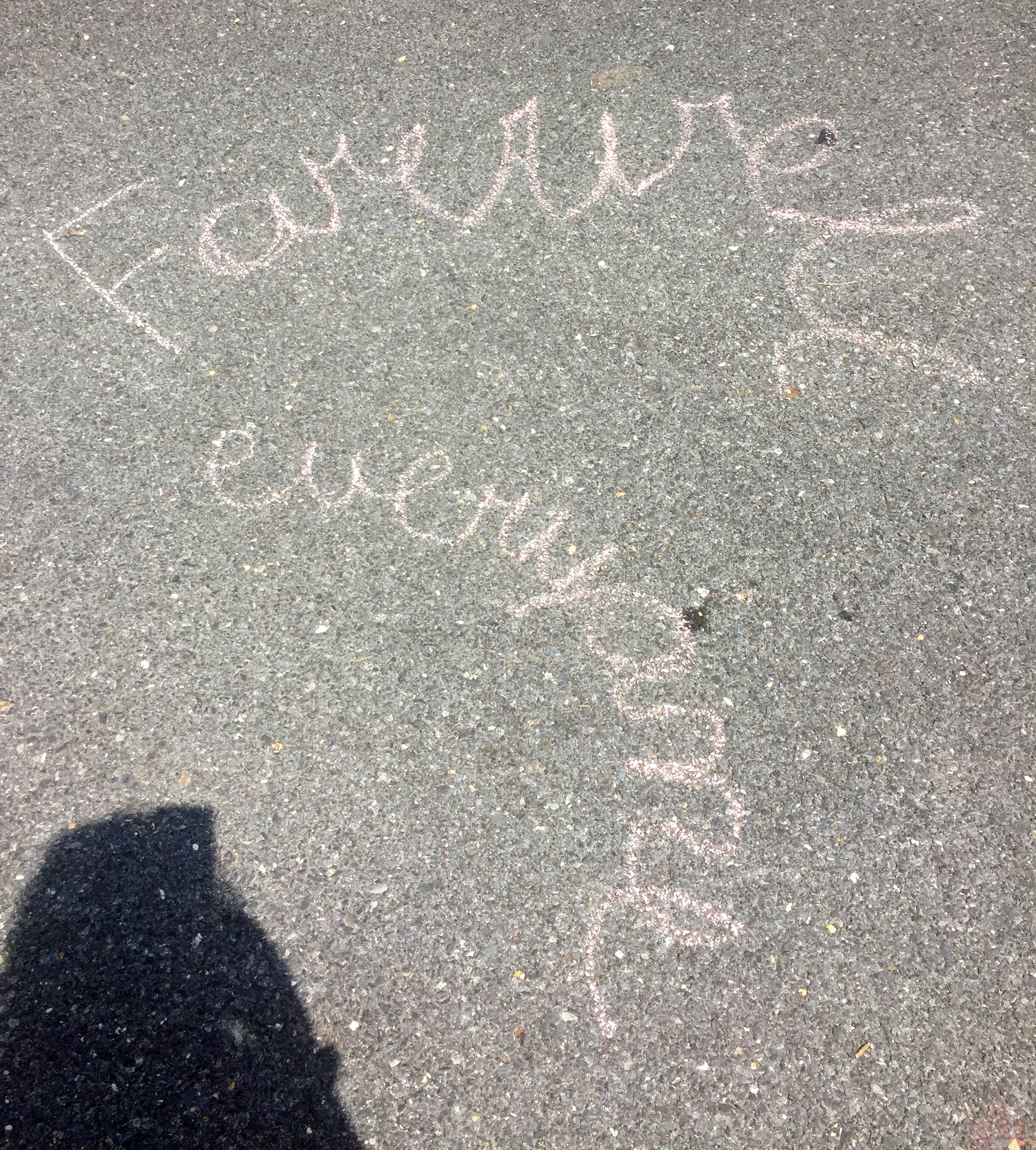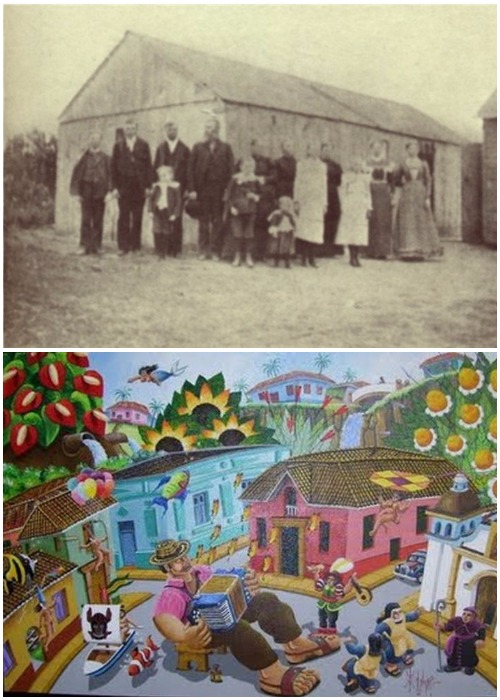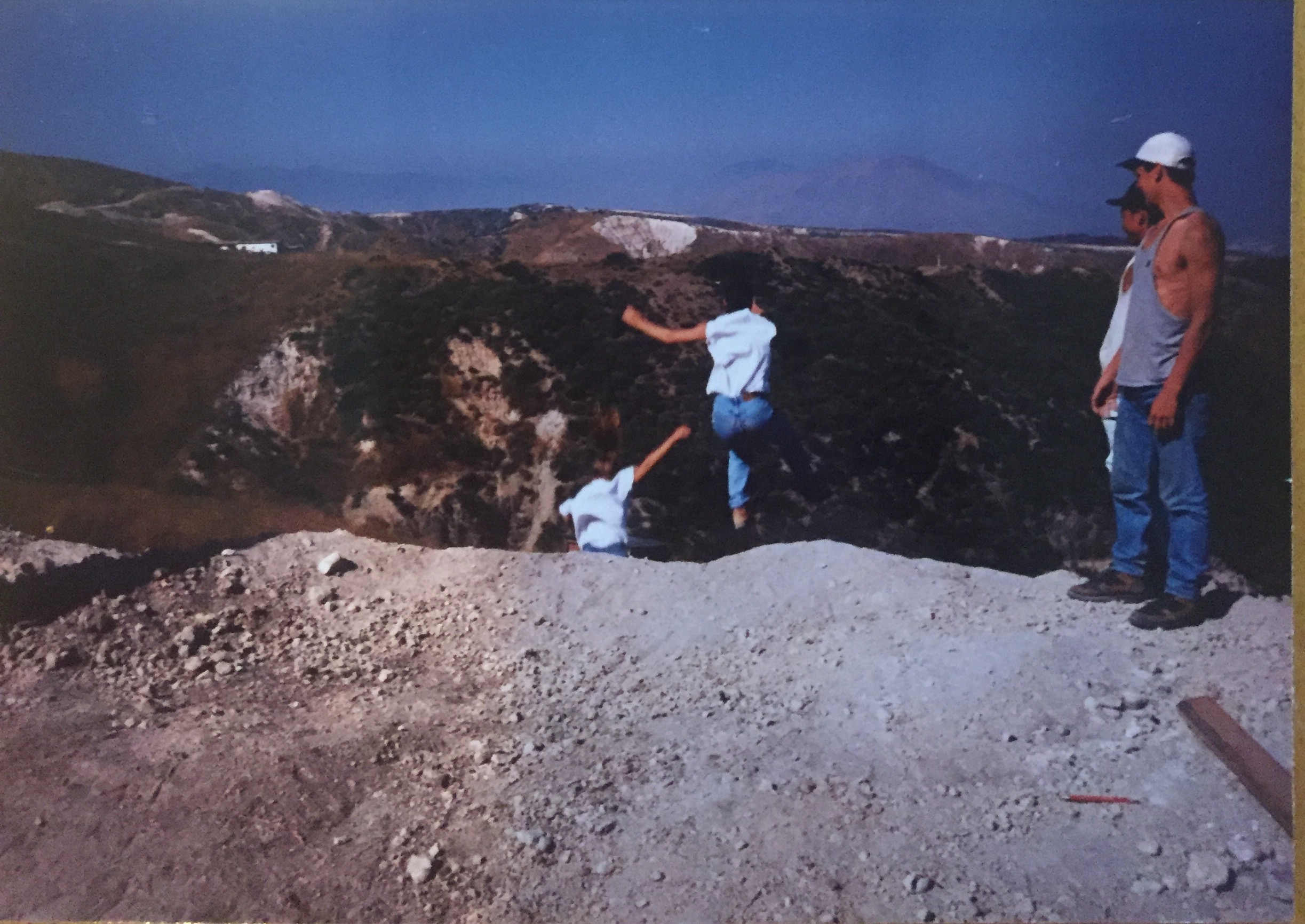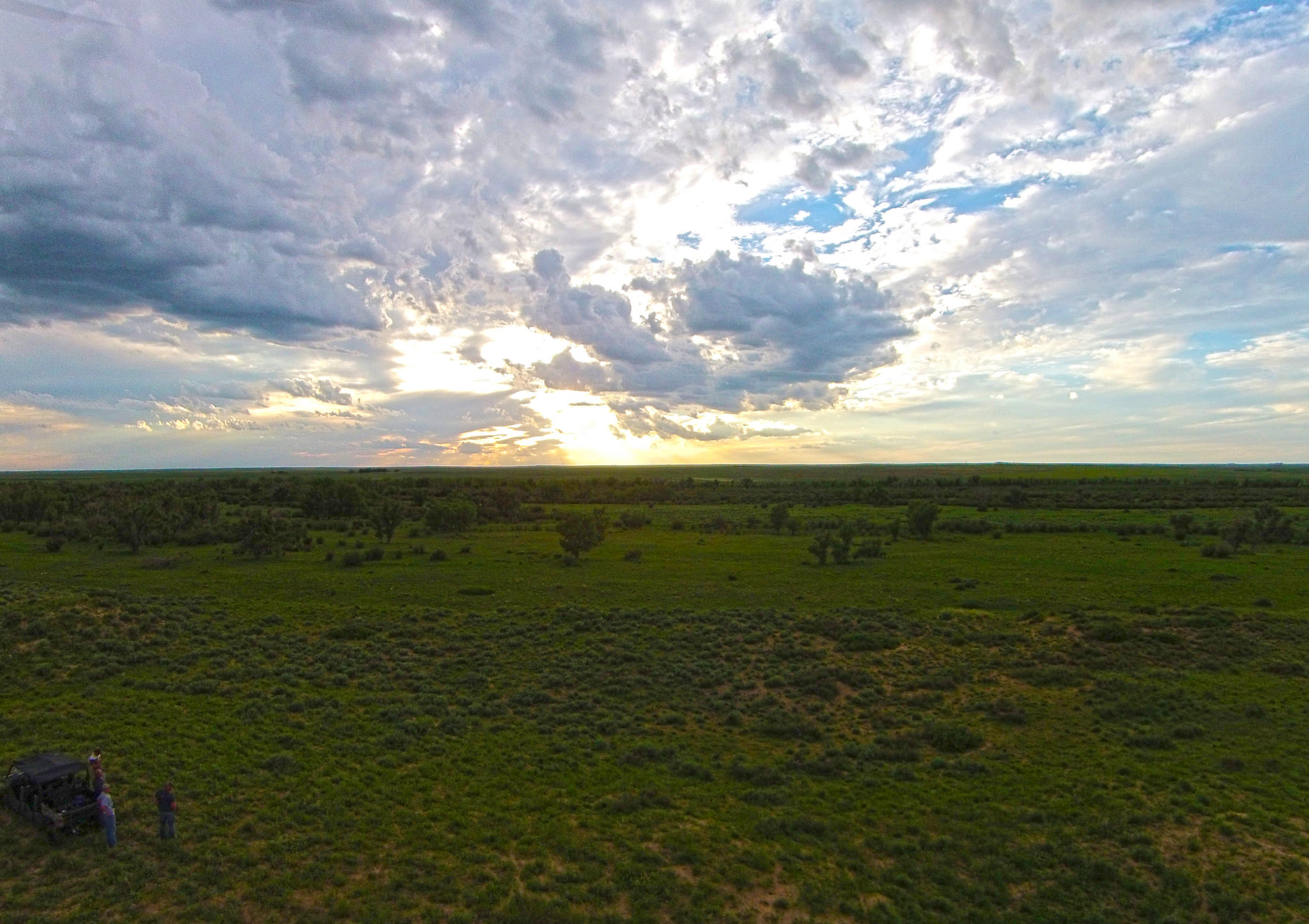 The evening I pulled into Ann Arbor, Michigan, a rainbow appeared as I put the car in park. No kidding, it was pouring down rain and then it wasn’t and six different rays of color soared above my Mazda 5 and sailed to the Pittsfield Township water tower a few yards away. “A rainbow!” I proclaimed as I stepped out of the car, a beautiful welcome on my move to a new town.
The evening I pulled into Ann Arbor, Michigan, a rainbow appeared as I put the car in park. No kidding, it was pouring down rain and then it wasn’t and six different rays of color soared above my Mazda 5 and sailed to the Pittsfield Township water tower a few yards away. “A rainbow!” I proclaimed as I stepped out of the car, a beautiful welcome on my move to a new town.
An hour and a half later, in a fit of confusion that comes when everything seems turned upside down in a new home, I accidentally drank water meant for Hadley and Harper’s fish tank. I squinted as I read the bottle of Betta Plus Water Conditioner, looking for how much time I had left to live. A quick Google search (you wouldn’t believe how many people have done the same thing), and a call to Poison Control, and I learned that I would suffer nothing save for the possibility of a stomachache. The lady on the phone told me I should drink something to settle my stomach. I chose a Bell’s Two Hearted Ale.
Missy Higgins sings a song called, “Going North,” and since I have known we would move to Ann Arbor, I’ve been listening to it and memorizing it like a Psalm. In one part of the song, she explains she wants to go North because she wants to “dance a tango with chance.” Every time I hear that phrase, I get the shivers. Dancing a tango with chance sounds so much more fun than saying, “I hear God calling me to Ann Arbor.” Why can’t God be in the dance of chance? I don’t want to believe in signs: in rainbows or drinking fish water. I want to believe that it makes no difference to the Lord where I go and where I live; that He is with me no matter what decisions I make. I want to believe no matter how spontaneous I can be when I make big life decisions, how very little I pray and ask for guidance, that He works through all of it. Still, when things go wrong, when they get sad or uncomfortable, it’s hard not to lift my eyes up towards the sky and think maybe I should’ve prayed more.
The day we pulled away from our home in Germantown, Hadley stood outside with a piece of chalk and walked slowly up and down the alley, where she and her friends rode bikes, sledded, had water balloon fights, and climbed trees. She dropped to her knees, and in her careful cursive wrote, “Farewell, everyone,” stood up and threw the chalk into the sandpit beyond our house. She walked into the garage where I was putting boxes into a UHaul and looked at me. “I don’t want to move. I want to stay here.”
“I know,” I said and put my hand on her shoulder, but she shook it off and stomped away.
As we drove, she leaned against the car window and I watched her. I kept trying to put my hand on her knee but she would move so I couldn’t reach her. I finally gave up. I turned forward, put my ear buds in, and turned on my playlist of Meghan Trainor songs.
About an hour into our trip, it started to rain. Soon it was raining so hard Jesse punched the hazard lights button because we were going so slow. A semi truck was jackknifed on the side of the road. I checked the weather forecast for flash floods and tornadoes. I didn’t say it out loud but I believed we should’ve waited another day to drive. Once that thought left my mind I was railroaded by the next three hundred: Why are you moving anyway? You can’t drive in this rain, what makes you think you’ll be able to drive in the snow? How are you going to find a job in Ann Arbor? Why’d you walk away from the one you had? Why’d you walk away from all your friends that took you so long to find? Look at your kids! They’re so sad. Why would you move them when they’re this old?
“Too bad we don’t have Harry Potter on CD,” Jesse said, one hand on his knee and the other nowhere near the 10 and 2 position. I was jealous of how assured he was. “We could listen while we drive home.”
“I could read the book,” Hadley said. Her offer to read was the first sentence our extroverted daughter said in the car.
“We don’t have the fifth one,” I said, turning to her and meeting her blue eyes. “I’m sorry. It’s packed in the UHaul.”
“I have the fourth one,” Hadley said and reached to unzip her backpack. She lifted Harry Potter and the Goblet of Fire with both hands.
“We could read from our favorite parts,” Harper offered.
“Yeah,” Hadley said, “I’ll start. I’m going to read the part when Voldemort comes back.” I was surprised to learn this was her favorite part. The first time I read it, the scene terrified her, but in the car, she not only read it, but she used different inflection, tone, and voices for each character. I folded my legs, rested my chin on my knees, and as we slowly trudged through the rain, Jesse, Harper, and I listened to Hadley read about how Harry, Cedric, Bertha Jorkins, Frank Brice, and Harry’s parents defied Voldemort. I started to cry when Bertha yells, “Don’t let him get you, Harry! Don’t let go!”
Hadley read the rest of the story, taking us out of the storm, through Maryland and Pennsylvania. I asked a couple of times if she was OK because she is notorious for getting carsick, but she said she was fine.
“No good sittin’ worryin’ abou’ it,” Hagrid tells Harry, “What’s comin’ will come, an we’ll meet it when it does.”
Indeed. Put your dancing shoes on Hadley. It’s time to tango.

 The evening I pulled into Ann Arbor, Michigan, a rainbow appeared as I put the car in park. No kidding, it was pouring down rain and then it wasn’t and six different rays of color soared above my Mazda 5 and sailed to the Pittsfield Township water tower a few yards away. “A rainbow!” I proclaimed as I stepped out of the car, a beautiful welcome on my move to a new town.
The evening I pulled into Ann Arbor, Michigan, a rainbow appeared as I put the car in park. No kidding, it was pouring down rain and then it wasn’t and six different rays of color soared above my Mazda 5 and sailed to the Pittsfield Township water tower a few yards away. “A rainbow!” I proclaimed as I stepped out of the car, a beautiful welcome on my move to a new town.
